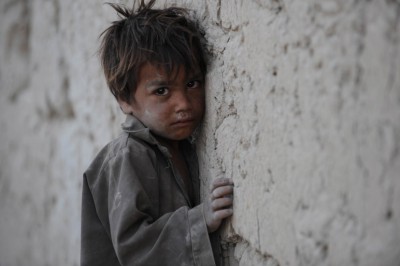
Provincial legislators across the board pledged to support and address malnutrition in Khyber-Pakhtunkhwa (K-P) during a seminar organised by Save the Children on Tuesday.
Save the Children Director of Advocacy and Child Rights Governance Arshad Mahmood shed light on the role of lawmakers in improving nutrition in the province.
“Legislators can play an important role in scaling up nutrition programmes as they are the key decision-makers of policies, governmental plans and budgets,” he said. Mahmood urged elected representatives to adopt the Provincial Integrated Nutrition Strategy and enact the Protection and Promotion of Breastfeeding and Child Nutrition Bill 2013.
Visiting professor at the Agriculture University Peshawar’s Department of Human Nutrition, Dr Parvez Iqbal Paracha alarmed the audience, informing them 47.8% children of less than five years of age in K-P suffer from malnutrition.

“The prevalence of underweight children is 24.1% and the prevalence of wasting is 17.3%. These figures have not changed significantly in the past decade,” he explained. According to the World Health Organization (WHO), wasting is an indicator of severe weight loss, most often associated with acute starvation and/or disease.
He added 26% children of school- going age suffer from iodine deficiency disorders, “lower compared to other provinces, but still unacceptably high.”
The provincial government is addressing this problem aggressively through salt iodisation, which presently covers 64% families in K-P.
Dr Paracha termed malnutrition a ‘life and death crisis’ for many, and linked it directly with economic growth.
“Chronic malnutrition levels in Pakistan have not changed in the last 40 years, and have been estimated to cost the economy 3% of the GDP each year. This makes malnutrition a more pressing issue than the energy crisis, which affects the GDP by 2%.”
He said malnutrition can be tackled over a generation if the issue is prioritised. “We all know what needs to be done. Now it’s about generating the political will to do it.”
K-P Department of Health Deputy Director Reproductive Health Dr Qaisar Ali said the K-P government has prepared a PC-1, which will soon be approved. He also emphasised on adopting exclusive legislation on salt iodisation.
Lawmakers expressed a consensus over the pressing nature of the issue and recommended consultations should be organised at the district and sub-district levels, involving local administration, health officials and civil society to create awareness on malnutrition.
An Upper Dir MPA suggested nutrition programmes should be launched in remote areas. K-P Minister for Health Shaukat Ali Yousafzai said the government is committed to reducing infant mortality in the province.
“We are in the process of preparing a Provincial Integrated Nutrition Strategy and the Breastfeeding and Child Nutrition Bill 2013 is its final stages and shall be presented before the assembly in the upcoming session.”
The K-P Assembly is also going to enact the Food Safety Bill in the next session, Yousafzai added.
Published in The Express Tribune, December 25th, 2013.




































COMMENTS
Comments are moderated and generally will be posted if they are on-topic and not abusive.
For more information, please see our Comments FAQ